With a behavioral health degree, you could be poised to help people overcome challenges and live successful, productive lives.

As a student of behavioral health, you’ll learn about counseling and treatments that have been proven effective at helping people adjust their behavior and make positive life choices. The field of behavioral health offers fulfilling career opportunities that can make a lasting difference for other people.
Editorial Listing ShortCode:
Read on to see whether an online behavioral health major might be the right move for you.
Online Behavioral Health Degrees

If you know that you want to spend your career helping other people, you might take a look at the field of behavioral health. In that line of work, you could play a role in helping others be well, both physically and mentally.
Behavioral health professionals focus on helping people change their actions and adjust their life decisions. With behavioral support, people can learn to make better choices and break free from negative habits. That can lead to an overall healthier, happier life.
Behavioral health professionals may work with people who:
- Are in the correctional system
- Have eating disorders
- Live with developmental disabilities
- Need help meeting their everyday needs
- Struggle with addictions to drugs, alcohol, or gambling
To prepare for a career in one of those areas, you can study psychology and counseling. You’ll learn about the science of addiction as well as treatment options for various struggles.
Editorial Listing ShortCode:
The classes you take will also introduce you to social service systems, professional conduct, and research techniques. Your college studies in behavioral health might end with a research paper, an internship, or a capstone project.
It’s possible to get an online behavioral health degree. Taking courses through the computer on your own time could help you earn a college degree even if you’re a busy adult. Accredited colleges offer reliable online psychology degree programs with course materials and rigorous learning experiences that can lead to respected degrees.
With this degree, graduates may be able to get a job as a probation officer, a substance abuse counselor, a social worker, or a human services aide. Their skills might also be useful for supportive roles in psychiatric and mental health facilities.
In addition, people with this degree often opt to go to grad school. A related master’s degree, such as a masters in behavioral health online or on campus or a masters degree in counseling online or on campus, could help prepare you for being certified or licensed as a behavior analyst or a mental health therapist.
Some professionals even go on to earn a Doctor of Behavioral Health online or on campus.
Behavioral Health Careers & Salaries
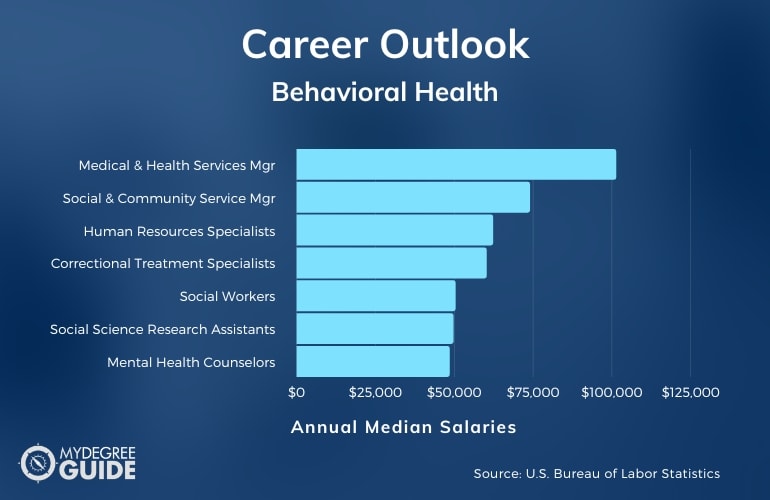
When you graduate with an online behavioral health degree, you may qualify to start working as a counselor of some sort. Popular jobs for this degree include substance abuse and behavioral health counseling.
Regulations for counseling licensure vary from state to state. Depending on the role and your state’s rules, you may be able to work as an independent counselor. In particular, some states require only a bachelor’s degree for becoming a substance abuse counselor.
For other roles, though, you may be required to work under the supervision of a licensed counselor at this point in your career. With experience, some professionals take on management roles. Positions could be available in mental health organizations, residential facilities, social service agencies, and community nonprofits.
According to the Bureau of Labor Statistics, the median salary for community and social service jobs is $48,410.
| Careers | Annual Median Salaries |
| Medical and Health Services Managers | $101,340 |
| Social and Community Service Managers | $74,000 |
| Human Resources Specialists | $62,290 |
| Probation Officers and Correctional Treatment Specialists | $60,250 |
| Social Workers | $50,390 |
| Social Science Research Assistants | $49,720 |
| Substance Abuse, Behavioral Disorder and Mental Health Counselors | $48,520 |
| Social and Human Services Assistants | $37,610 |
| Psychiatric Technicians | $36,570 |
| Psychiatric Aides | $30,260 |
Employment requirements for these career paths may vary from one workplace to the next. A degree in behavioral health could lead to a variety of job opportunities. For example, in the criminal justice field, you could pursue work as a correctional counselor or a probation officer.
You might also qualify to be a social worker who focuses on case management or child protective services. Rules about social worker licensure vary between states. You might enter the job force in a supportive role as an assistant to an experienced mental health professional. Examples include being a psychiatric aide, a psychiatric technician, a human services assistant, or a social services assistant.
Editorial Listing ShortCode:
Some behavioral health majors also contribute to a social scientist’s research. Some people with behavioral health degrees end up in the corporate world. For example, graduates may discover that their knowledge of people could equip them for a job in human services.
Behavioral Health Bachelor’s Curriculum & Courses

In a behavioral health degree program, you’ll take courses in sociology, psychology, social work, and related disciplines.
Your school’s behavioral health curriculum may include courses similar to the following:
- Abnormal Psychology: In this class, you’ll learn about the symptoms and treatment options for various mental health disorders.
- Addiction: This course will cover the science of substance abuse and other addictions and provide an overview of intervention and treatment options.
- Counseling Skills: Through various exercises, you can develop your ability to ask good questions, listen, and provide appropriate help in individual and group counseling settings.
- Counseling Theories: You’ll study different approaches to counseling, including cognitive-behavioral and humanistic models.
- Diversity in Counseling Settings: You will learn to work with counselors and clients of different ages, ethnicities, religions, economic levels, and family backgrounds.
- Families and Relationships: This course will address interactions between couples and families and consider how family dynamics affect other parts of a person’s life.
- Human Service Systems: You may have a class that introduces you to local and national organizations that provide social and human services as well as laws that govern the delivery of such services.
- Introduction to Psychology: Early in your program, you might take a general psychology course that covers basic principles in human thought and behavior.
- Professionalism in Behavioral Health: This class will focus on how you conduct yourself ethically and effectively in your communication, decision-making, and teamwork.
- Social Science Statistics and Research: You’ll learn how to read scientific literature, gather and analyze data, and report research findings.
In addition to classes like these, you might also complete an internship before graduation.
Admissions Requirements

Before you can earn a behavioral or mental health degree, you’ll first have to apply to colleges. Schools may review the following documents when deciding whether to admit you:
- Application form
- Essay or other writing sample
- Scores from the SAT or ACT (not needed at all schools)
- Transcripts from high school and any previous colleges
A high school diploma is usually a requirement for admission to bachelor’s degree programs, but a GED is typically an acceptable substitute.
Accreditation

It’s strategic to choose a regionally accredited college for your behavioral health major. Whether you go to school online or on a college campus, accreditation is a top factor to consider. Both colleges and employers respect regional accreditation.
Editorial Listing ShortCode:
An accredited course of study might allow you to transfer your credits to another school or qualify for more jobs after graduation. Working as a behavioral specialist or analyst often requires a graduate degree, so many students plan to continue their education. Getting into a grad program usually requires holding a regionally accredited bachelor’s degree.
Financial Aid and Scholarships
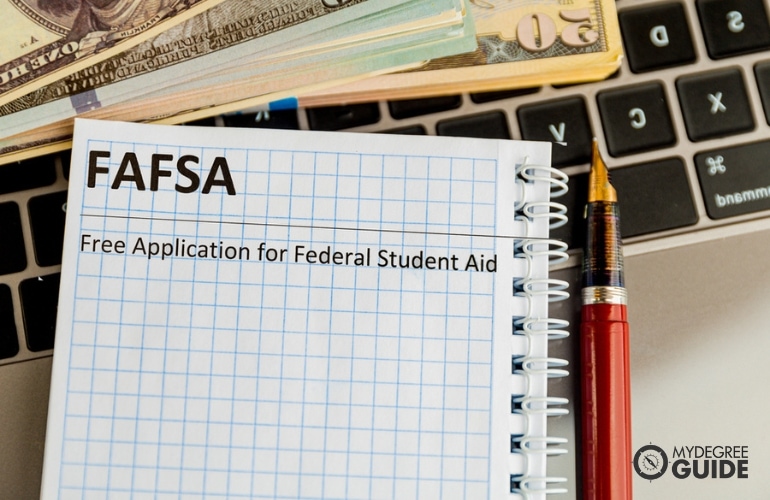
As you prepare for college, you can fill out the Free Application for Federal Student Aid (FAFSA). This government form will determine your eligibility for tuition assistance based on need.
From the federal government, you might qualify to receive grants or loans. Grant money is yours to keep, but loans are to be repaid after graduation. States often have similar funding programs for their residents. While government assistance is based primarily on your income level, scholarships might have other criteria, such as academic achievement. Some colleges offer scholarship money to many of their incoming freshmen.
Scholarships are also available from a variety of organizations around the country, including charitable foundations and industry groups. Tuition money may also come from an employer. You can ask your workplace if there’s a program that could help you pay for college classes or materials.
What Is a Behavioral Health Degree?

A behavioral health degree is an undergraduate college program that’s focused on helping people. The field of behavioral health deals with adjusting people’s behavior so that they can live happier, healthier, more productive lives.
Behavioral health professionals often work with people who have addictions, eating disorders, or developmental disabilities. They help them choose positive behaviors and find success in their relationships and endeavors.
In this degree program, you can study topics like psychology and social work, and you can learn about strategies for providing counseling and treating addictions. This degree can lead students straight into the workforce or prepare them for graduate studies.
What Can You Do with a Degree in Behavioral Health?

As a graduate of a behavioral health college program, you may pursue work in a human or social services agency, a mental health organization, or the correctional system.
At first, you might work as an assistant, but experience might help you get a job as a counselor or a case manager. Some positions might eventually lead to management roles. Experienced professionals may head up a nonprofit community group, an addiction treatment facility, or a mental health clinic. It may also be possible to apply your behavioral health expertise to a human resources job in a business setting.
What Does a Behavioral Specialist Do?

A behavioral specialist is a professional who works as a counselor to help people choose positive behaviors. People in this line of work often specialize in helping with developmental disabilities, mental health conditions, or emotional disorders.
Behavioral specialists observe their clients and develop treatment plans that may help. They pay attention to the progress that patients make and adjust their treatments accordingly. Getting a bachelor’s degree in behavioral health is often just the first step toward this job.
A master’s degree is usually required for becoming a certified behavioral specialist. Some states require licensure, and national certification is available as well.
How Long Does It Take to Get a Behavioral Health Science Degree Online?

Traditionally, full-time bachelor’s degrees take about 4 years to complete. For students who earn their behavioral health degrees online, it may be possible to shrink that timeframe a bit.
Editorial Listing ShortCode:
Online programs often hold 8 week classes that are offered back-to-back. In that way, you may be able to earn more credits in less time. Also, some online behavioral health programs accept a large number of transfer credits. If you’ve done previous college coursework, it may take you only a couple of years to complete the credits you’ll need for a bachelor’s degree in behavioral health.
What’s the Difference Between Behavioral Health vs. Mental Health?
When you search for online behavioral health programs, you’ll probably come across mental health studies as an alternative option. Knowing the differences can help you decide which field to study.
| Behavioral Health | Mental Health |
|
|
In general, behavioral health is a larger category of which mental health is a subset.
What’s the Difference Between a Behavioral Health Counselor vs. Therapist?
As a behavioral health professional, your career might focus on counseling or therapy.
| Behavioral Health Counselor | Behavioral Health Therapist |
|
|
It’s helpful to keep in mind that there’s a lot of overlap between counseling and therapy, and not everyone defines them in the same way.
Is a Behavioral Health Degree Worth It?

Yes, a behavioral health degree is worth it for many students. Behavioral health issues affect many people. With a degree in this field, you’ll be better prepared to lend help and support to some of them. You might pursue work for an organization that provides human services, behavioral counseling, or mental health treatment.
Editorial Listing ShortCode:
Behavioral health professionals are also in demand. According to the Bureau of Labor Statistics, jobs for substance abuse, behavioral disorder, and mental health counselors are expected to rise by 22% over the next ten years. In particular, there may be many job openings related to the correctional system and veterans’ care.
Universities Offering Online Bachelors in Behavioral Health Degree Programs
Methodology: The following school list is in alphabetical order. To be included, a college or university must be regionally accredited and offer degree programs online or in a hybrid format.

Arizona State University offers a BS in Counseling and Applied Psychological Science. The program consists of 7.5-week courses that are fully online. Potential courses include Introduction to Psychology, Theories of Counseling and Psychotherapy, Addictions I: Foundations and Basic Principles, and Self in a Multicultural Society.
ASU is accredited by the Higher Learning Commission.
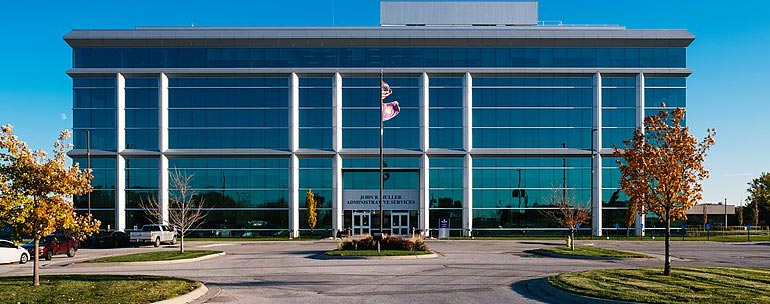
Bellevue University offers a BS in Behavioral Science. Students are given opportunities to start building practice-based portfolios from the beginning of the program. Those that already have associate degrees may join a cohort in which students take one course at a time with the same group of classmates.
Bellevue University is accredited by the Higher Learning Commission.

Central Methodist University’s Bachelor of Behavioral Health is available online. Students in the program can learn to apply abstract knowledge by participating in three internships. The curriculum is designed to academically prepare students for graduate studies in psychology, ABA, social work, and related fields. CMU’s online classes are 8 or 16 weeks long and designed to provide flexibility for busy working adults.
Central Methodist University is accredited by the Higher Learning Commission.
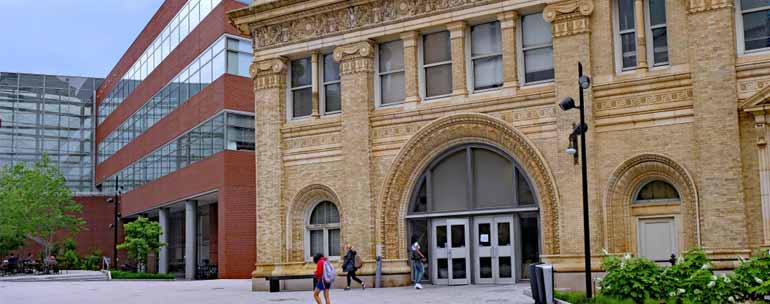
Drexel University offers an online program for a Bachelor of Science in Behavioral Health Counseling. Drexel uses a quarterly academic calendar, with each quarter lasting 10 weeks. Potential courses include Foundation of Behavioral Health Care, Counseling Theory and Practice, and Psychiatric Rehabilitation Principles and Practices.
Drexel University is accredited by the Middle States Commission on Higher Education.
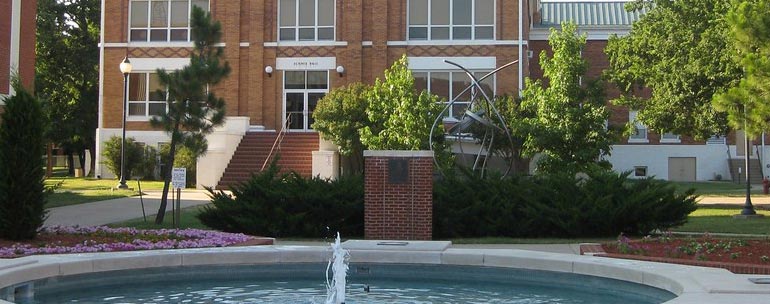
East Central University offers a fully online program for a Bachelor of Science in Psychology with a concentration in Behavioral Health. Each course is 8 weeks long, and students usually take 2 to 4 years to graduate. Potential courses include Psychology of Aging, Introduction to Health Psychology, and History and Systems of Psychology.
East Central University is accredited by the Higher Learning Commission.

Grand Canyon University offers a Bachelor of Science in Behavioral Health Science. The program is available online and on campus. Online classes are 8 weeks long, and on-campus classes are 15 weeks long. On-campus classes are available in the evenings.
Grand Canyon University is accredited by the Higher Learning Commission.

Liberty University’s School of Behavioral Sciences offers three different bachelor’s degree options: a BS in Human Services, a BS in Psychology, or a BS in Social Work. The human services and psychology options are available 100% online, and the courses for these programs are 8 weeks long. The social work option can be earned mostly online but does require one on-campus intensive.
Liberty University is accredited by the Southern Association of Colleges and Schools Commission on Colleges.

Seton Hill University’s Bachelor of Arts in Behavioral Health is available online. Seton Hill’s online courses use an accelerated, 8-week format, and students have opportunities to participate in field experiences and internships. The program’s instructors have experience conducting research and providing behavioral health services to clients.
Seton Hall is accredited by the Middle States Commission on Higher Education.
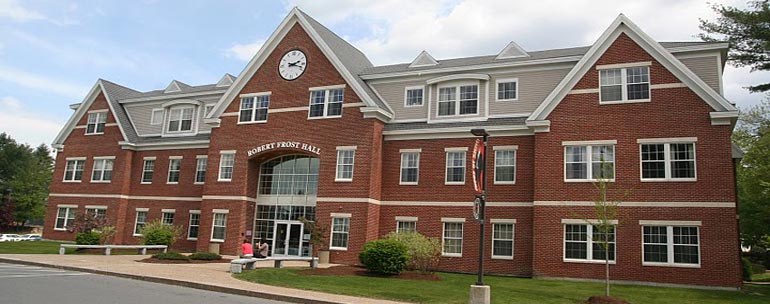
Southern New Hampshire University offers a BA in Psychology with a concentration in Mental Health. Students may get a Certificate of Data Literacy in Psychology embedded into their degree by using elective credits, and they also have the option to participate in an internship. SNHU’s online classes are asynchronous, with no set meeting times.
Southern New Hampshire University is accredited by the New England Commission of Higher Education, Inc.

Thomas Jefferson University offers an online program for a BS in Behavioral and Health Services. Each course in this flexible program is 8 weeks long, and the program can typically be finished in 2 to 3 years. The curriculum consists of courses such as Interpersonal Relations and Small Group Dynamics, Behavioral Health Policies and Services, and Applications of Behavioral Health Research.
Thomas Jefferson University is accredited by the Middle States Association of Colleges and Schools.
Getting Your Bachelor’s in Behavioral Health Degree Online

Behavioral health is a growing field of study, and it directly relates to many jobs in which you can help people overcome their challenges and lead better lives.
Many graduates use their behavioral health skills to work in child services, addiction treatment, job rehabilitation, or correctional counseling. To get started, you might take a look at getting an online bachelors in behavioral science and health. Through an online program, you can learn the principles of this field and build a strong foundation for your career.
You can begin exploring accredited schools today to find the online behavioral health program that’s right for you.

